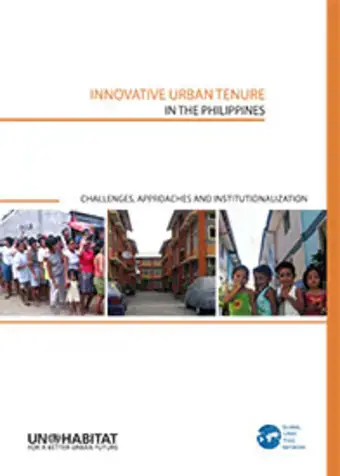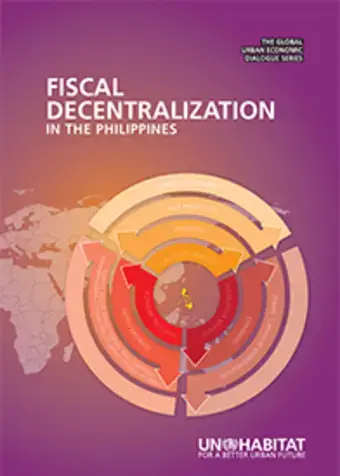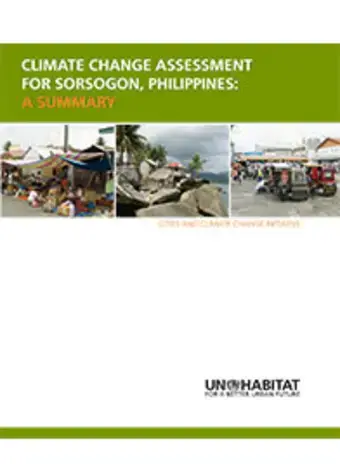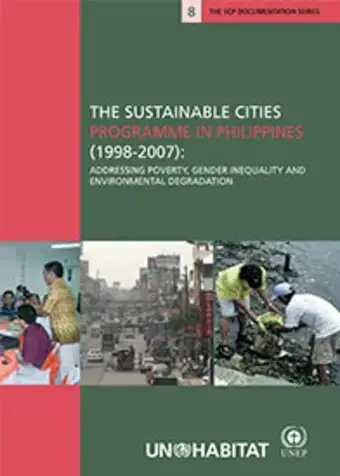Since 2003, UN-Habitat has worked directly with national government partners and over 50 local government units—with a special focus on localization of global development frameworks (e.g. MDGs, SDGs, New Urban Agenda), urban planning and design, community-based shelter recovery, slum upgrading, climate change adaptation and mitigation, and disaster prevention and response. Guided by and operationalizing UN-Habitat’s global mandate, the country office supports the government in realizing the Philippine Development Plan, with a focus on the National Urban Policy, the New Urban Agenda, and the National Urban Development and Housing Framework. As a member of the UN Country Team in the Philippines, it is committed to implementing the Partnership Framework for Sustainable Development (i.e. UNDAF).
Impact
Urban numbers
Challenges
Philippine cities are facing unprecedented demographic, environmental, economic, social and spatial challenges. There has been a phenomenal shift towards urbanization, with 5 out of every 10 Filipinos living in cities, with an estimated 84 percent of Filipinos expected to reside in urban areas by 2050. This growth is expected to happen not only in the capital Metro Manila but mainly in small and intermediate cities. The consequences of this rapid urbanization are dramatic.
In many big and small cities in the Philippines, the effects can already be felt: lack of the vulnerable and poor’s access to land and proper housing, growth of slums, inadequate and outdated infrastructure, urban sprawl, families facing poverty and unemployment, safety and crime problems, pollution and health issues, as well as the impacts of natural or man-made disasters and other catastrophes due to the effects of climate change or man-made stressors such as conflict. UN-Habitat recognizes that urbanization is an opportunity to address these effects and leave nobody behind.
Donors and partners
The success of UN-Habitat’s work in the Philippines relies heavily on partnerships with key national government agencies and local authorities. To deliver impactful work in the country—from influencing policy, post-disaster shelter recovery, climate action planning, developing mitigation strategies, post-conflict community building, to facilitating security and safety in neighborhoods—UN-Habitat brings its expertise in global sustainable urbanization approaches while, in equal measure, leveraging the experience and technical proficiencies of its partners. UN-Habitat also depends on a diverse network comprised of civil society organizations, the private sector, the academe, and other urban actors to facilitate custom urban solutions that, albeit resonant in local contexts, can significantly inform national, regional, and global views on addressing urban issues that affect us all.
Contact
Legacy content
- Total value of UN-Habitat investments (2008-2013): US$ 869,370
- Total number of UN-Habitat projects (2008-2013): 7 projects
- Main donors: The main donors to UN-HABITAT’s projects in the Philippines are Multi Donor Group Fund – Spain, Asian Development Bank (ADB), Instituto de Promocion y Apoyo al Desarrollo (IPADE), Department of Interior and Local Government (DILG), Saggitarius Mines, Inc. and BASF Social Foundation.
- Implementing partners: The main UN-HABITAT partners for project execution in the Philippines are local government agencies such as the Department of the Interior and Local Government (DILG), National Economic and Development Authority (NEDA), local NGOs, Action Groups. The United Nations Development Programme (UNDP) has also been a partner.
UN-Habitat has been working in the Philippines on post-disaster (Typhoon Ketsana) reconstruction and rehabilitation as well as on other urban issues like capacity building, slum prevention/upgrading and water/sanitation services.
General information
Capital: Manila
Major cities: Major Philippine cities are Manila City, Quezon City, Budta, Davao, Malingao, Cebu City, General Santos, Taguig, Pasig, Antipolo.
- Population: 96.71 million
- GDP US$: 250.2 billion
- GDP growth rate at constant 2005 prices (annual %): 3.7%
- Urban population: 49.1%
- Population growth rate (average annual %): 1.7%
- Urban population growth rate (average annual %): 2.2%
- Rural population growth rate (average annual %): 1.2%
Source: World Bank 2012 and UN-data 2013
UN-Habitat projects in the Philippines
Family-Based Actions for Children and their Environs in the Slums (FACES)
- Duration: May 2008 - December 2008
- Value: US$ 40,000
- Donor: Department of Interior and Local Government (DILG)
Strengthening Philippine City Capacities to Address Climate Change Impacts
In this project, UN-Habitat showcases a climate change resilient human settlements in Sorsogon City. Sharing of knowledge and good practices/learnings on climate change mitigation and adaptation will also be the primary focus of this project to build the foundation for increasing Philippine City capacities in addressing climate change impacts.
- Duration: January 2009 - December 2012
- Value: US$ 550,000
- Donor: Multi Donor Group Fund (MDGF)
- Implementing partners: National Economic and Development Authority (NEDA), United Nations Development Programme (UNDP)
Joint Country Programme on Water and Sanitation in the Philippines
The overarching development goal of this UN-Habitat and IPADE Joint Country Programme on water and sanitation is to realize sustainable human settlements development in selected rural/small town ecologically sensitive zones through improved local capacities to develop and implement programmes and projects on improving access to clean water, basic sanitation and solid waste management.
- Duration: June 2009 - December 2010
- Value: US$ 88,647
- Donor: Instituto de Promocion y Apoyo al Desarrollo (IPADE)
- Implementing partners: ALTERDEV Services Foundation, Artists' Quarters (AQ), Center for Empowerment and Resource Development (CERD), Institute for Social Order (ISO), Coastal CORE
Transitory Shelter Project for the Affected Families of Typhoon Ketsana
This project seeks to alleviate the living conditions of 30 families in Bagong Silangan, Quezon City who are some of the many families who are adversely affected by the flooding caused by Typhoon Ketsana. The assistance will consist of provision of transitory housing while they plan and negotiate with the village and city governments and other stakeholders for a permanent and sustainable solution to their land tenure and housing problems.
- Duration: November 2009 - December 2010
- Value: US$ 20,833
- Donor: Sagittarius Mines, Inc.
- Implementing partners: Homeless People's Federation of the Philippines
Permanent Shelter Project for the Affected Families of Typhoon Ketsana
This project is located in Manila. This project seeks to alleviate the living conditions of 28 families in Barangay Bagong Silangan, Quezon City, who are some of the many families adversely affected by the flooding caused by Typhoon Ketsana. The assistance will consist of provision of permanent housing and livelihoods/skills training for 28 families who are to be resettled in the existing 3 hectare resettlement site owned by the municipality of Rodriguez, Rizal under a usufruct agreement.
- Duration: June 2010 - October 2010
- Value: US$ 36,630
- Donor: BASF Social Foundation
Building Normative/Operational Coordination Arrangements in the Asia/Pacific Region
This project is located in Bangladesh, Indonesia, Philippines and Fiji. ROAP's ENOF was designed to facilitate regular dissemination of global norms and frameworks to regional/country partners and, through enhanced knowledge management arrangements to capture operational good practices and ensure these are shared locally, nationally, regionally and globally.
This project is the first of 5 projects implemented to fulfill ROAP's ENOF, and will enable ROAP and its country/regional partners to benefit from knowledge and expertise available from key Headquarter Branches and Global/Inter-Regional Programmes, through ROAP coordinated missions to Bangladesh, Indonesia, the Philippines and the Pacific.
Branch staff travel to the selected countries (through a maximum of 2 missions each) to share global norms and programmatic support opportunities with national partners in support of HABITAT Programme Manager (HPM) efforts to mainstream sustainable urbanization norms and practices into UNDAF's and One UN Country Action Plans, or under Mid-Term Review and strengthen future implementation.
- Duration: July 2010 - December 2011
- Value: US$ 33,260
- Donor: UN-HABITAT
UN-Habitat Support to Asia Development Bank (ADB) City Development Initiative for Asian Cities
This Cities Development Initiative for Asia (CDIA)/UN-Habitat project aims to: Bridge the gap between City Development Strategies and prioritised project Feasibility Studies through better project prioritisation and the preparation of fast-track Pre-Feasibility Studies (PFS) that will kick-start the development of the more detailed feasibility studies and capital investment packages; Build the capacities of National Partner Organisations (NPOs) to support cities in the preparation of these PFS, and; Better mobilise domestic, international, public and/or private financing so that PFS and FS have better chance of successful financing.]
- Duration: January 2011 - March 2012
- Value: US$ 100,000
- Donor: Asian Development Bank (ADB)
- Implementing partners: Housing and Urban Development Coordinating Council (HUDCC)-Philippines, Department of the Interior and Local Government (DILG)-Philippines, Local Government Academy (LGA)-Philippines, Administrative Center for China's Agenda 21 (ACCA21), Mayore Chapter, Urban and Regional Development Institute (URDI), Sevanatha and Marrg



